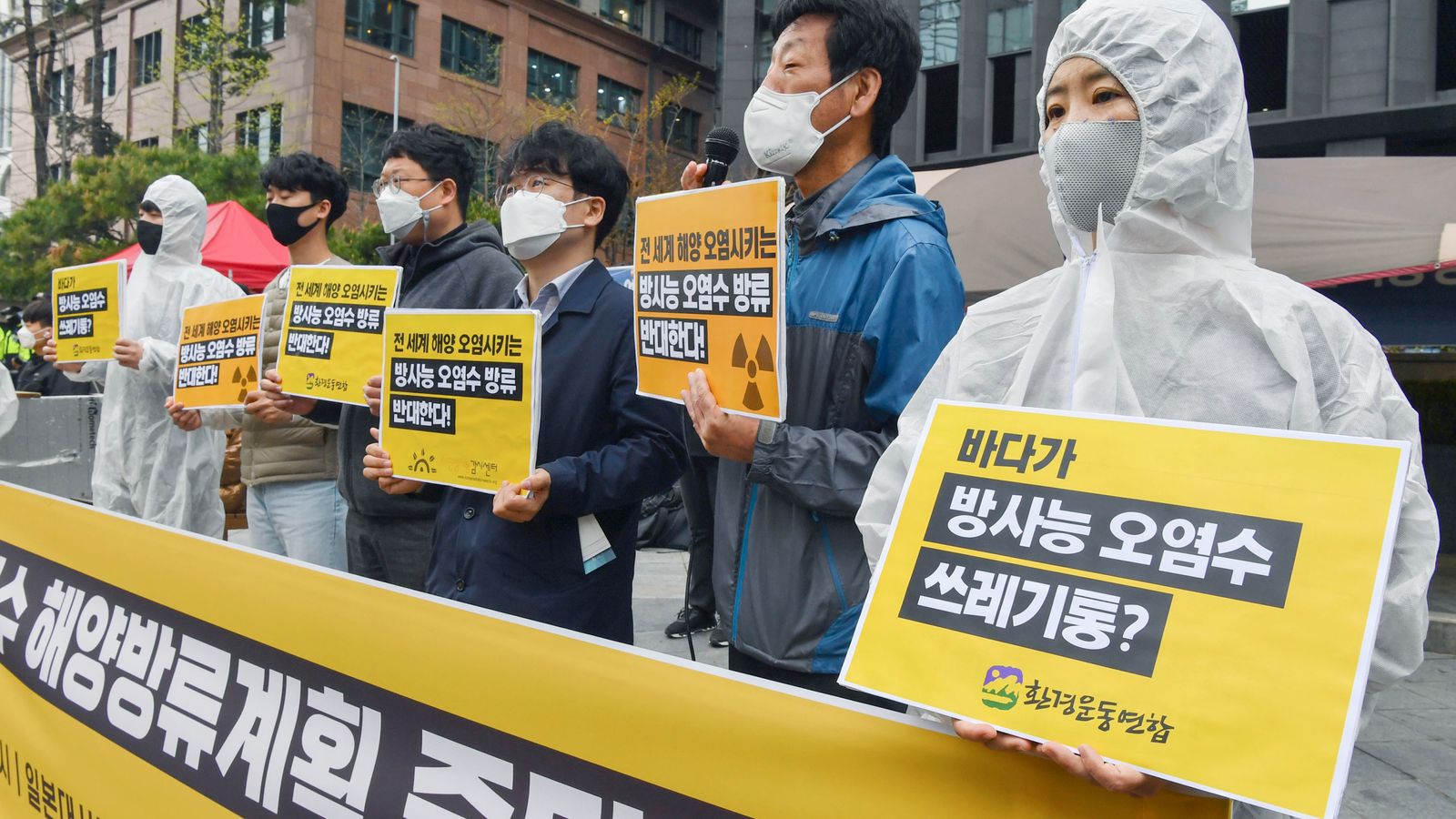A fifth of the UK’s energy comes from nuclear but opposition to the power source persists.
Environmentalists say the best argument against nuclear energy are Fukushima and Chernobyl.
They say whilst the risks of accidents are tiny, the impact if something goes wrong can be devastating – and the fall-out over what to do with millions of tonnes of water used to cool the power station at Fukushima illustrates that global public confidence in nuclear energy still needs repair.
There are always going to be bigger safety concerns about nuclear energy compared to say wind or solar.
That coupled mainly with cost issues means environmental groups like Greenpeace are opposed to the building of new nuclear power stations.
Nuclear energy is expensive, largely due to the safety systems needed, while the cost of renewables like solar fall year on year.
The world is being urged to turn its back on fossil fuels like coal and favour low carbon solutions to tackle climate change.
Wind and solar can be built much more quickly than nuclear.
But the argument for nuclear power is that it delivers 24 hours a day, seven days a week whatever the weather.
It’s a low carbon choice because it doesn’t emit greenhouse gases like carbon dioxide and methane.
The government says it supports nuclear in the energy mix because of its reliability – nuclear power plants don’t require a daily supply of new fuel to operate, unlike gas, coal and biomass plants.
A new power plant at Hinkley Point C shows intent to invest in nuclear for the future – in spite of the pros and cons.
But the continuing problems at Fukushima – which went into meltdown in 2011 crippled by an earthquake and tsunami – tells its own story.
For years Japan has debated over what to do with the more than a million tonnes of water used to cool the power station.
The move, long-speculated but delayed for years due to safety fears, is being fiercely opposed by locals and Japan's neighbours.
The government insists most of the radioactive isotopes have been removed using a complex filtration process but one isotope, tritium, cannot be removed.
The company that runs the power plant has promised to dilute the water within regulatory limits before pumping it into the ocean.
But the public and campaign groups are not satisfied.
Residents in Fukushima remain concerned and fishing groups believe consumers will refuse to buy produce from the region.
It’s left the Japanese government once again being accused of “failing” the people of Fukushima.
And it adds further fuel to the fire of the world’s anti-nuclear movement.
Watch: The Daily Climate Show
Sky News has launched the first daily prime time news show dedicated to climate change.
Hosted by Anna Jones, The Daily Climate Show will follow Sky News correspondents as they investigate how global warming is changing our landscape and how we all live our lives.
The show will also highlight solutions to the crisis and show how small changes can make a big difference.






















